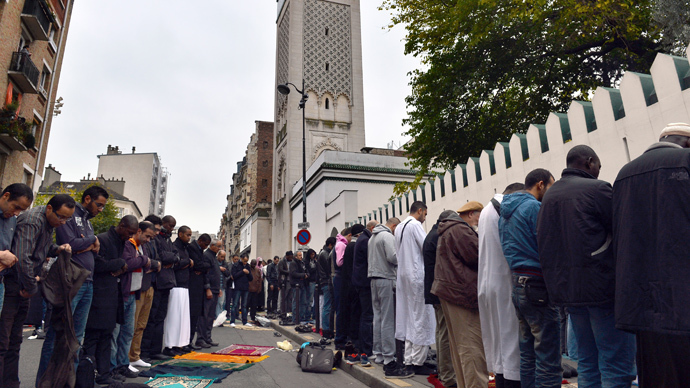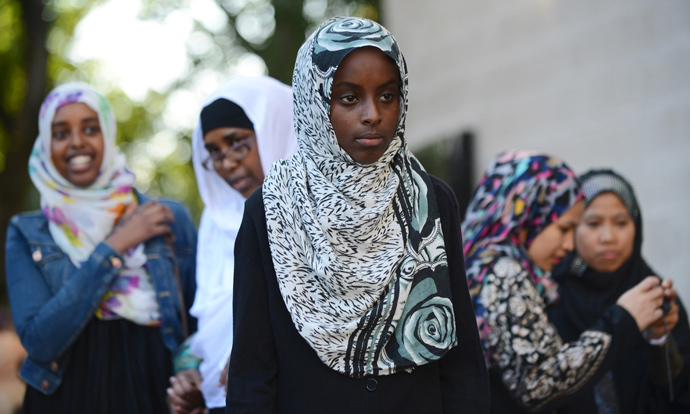Europe turns blind eye on home-bred radical Muslims to preserve ‘pool of agents’

With hundreds of European Muslim youths going abroad to fight international jihad, governments chose to ignore a possible blowback problem, seeing local minority communities as a pool of potential recruits, Oxford University historian Mark Almond told RT.
RT:Do you agree those European Muslims who go to fight
in Syria present a threat to their home countries - or is that an
exaggeration?
Mark Almond: I think there is a threat. Obviously we are
talking about a relatively small number of people out of the
millions of Muslims who live in the European Union. The problem
however is that even if 0.1 percent of people risk being
radicalized, and we are talking now well over a thousand,
possibly several thousand people from the European Union
countries have either gone to Syria or involved in the kind of
pipeline of radicalization and supplying people going there. We
do have therefore a subgroup that is a threat. And we had
actions, violent actions in France, in Britain and in other
countries where this has come to the surface of people who have
been radicalized elsewhere, sometimes in Syria and other parts of
North Africa for instance or in Somalia.
RT:What do you think prompts those people to join the
Islamists in Syria - do they share their political aims of
toppling Assad - or is it religious ones?
MA: I think we have two sorts of angles. On one hand, the
individuals themselves may have all sorts of frustrations
including teenage adolescent angers and frustrations of being
part of a minority in a society that they perhaps don’t feel
wholly integrated in. They become in some ways more religious
than perhaps their parents were.
But also there are people who seek out and recruit them. And I
think we do have to accept, particularly in Britain that we have
paradox of contradictory situation that some of the groups the
British government sponsors domestically in what they call
counter radicalization groups, foundations found by the tax payer
to in sense come down the radicals, actually also acts as
conduits for people going into Libya in 2011, now going to Syria
today. So we have to face the problem.
To some extent, there is an intermixing of a kind of personal
psychological and other reasons why some might become very
radical with people who are recruiting, grooming and sending off.
And some of those people have found official connections in
Britain, in Norway, in France too.

RT:Is there an argument to say the European countries,
by openly supporting the Syrian opposition, are unwittingly
encouraging their Muslim citizens to join their ranks?
MA: I think there is a risk of this. Now perhaps belatedly
we see people like the British Foreign Secretary William Hague
suddenly noticing that this radicalization is there. It has been
going on now for almost three years, perhaps even before that.
One problem is the element of collusion. Remember that the
intelligence services in countries like Britain and France see
their migrant Muslim communities as a pool of potential recruits
to provide them with agents, informants and so on in the wider
Middle Eastern world where Muslims live.
And so there has been a few hyper tendencies to turn a blind eye
to the problem of ‘blowback’ as they called it from Afghanistan.
The West has supported radical groups in the past going back to
1980s in Afghanistan, overlooking that these groups do have their
own agenda; they don’t necessarily just want to do what the
puppet master has asked them to do. And they certainly turn and
bite their hand. But the hand is not necessarily that of the
person who has helped to groom them and send them but ordinary
civilians, ordinary citizens in the society, whether people
shopping at West Gate Center in Nairobi a few weeks ago or
walking down the street in Woolwich back in May in this country
for instance.
The statements, views and opinions expressed in this column are solely those of the author and do not necessarily represent those of RT.












